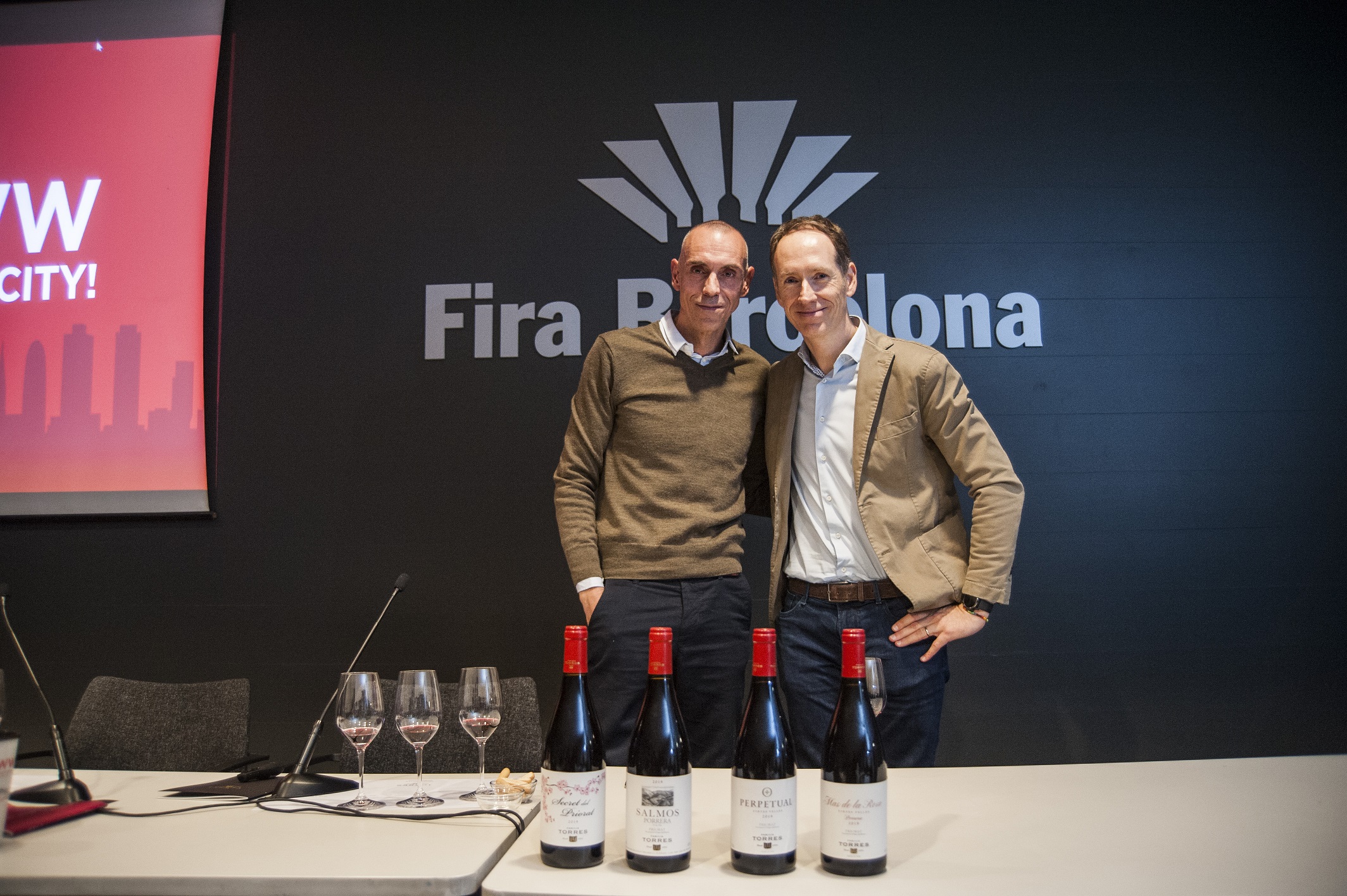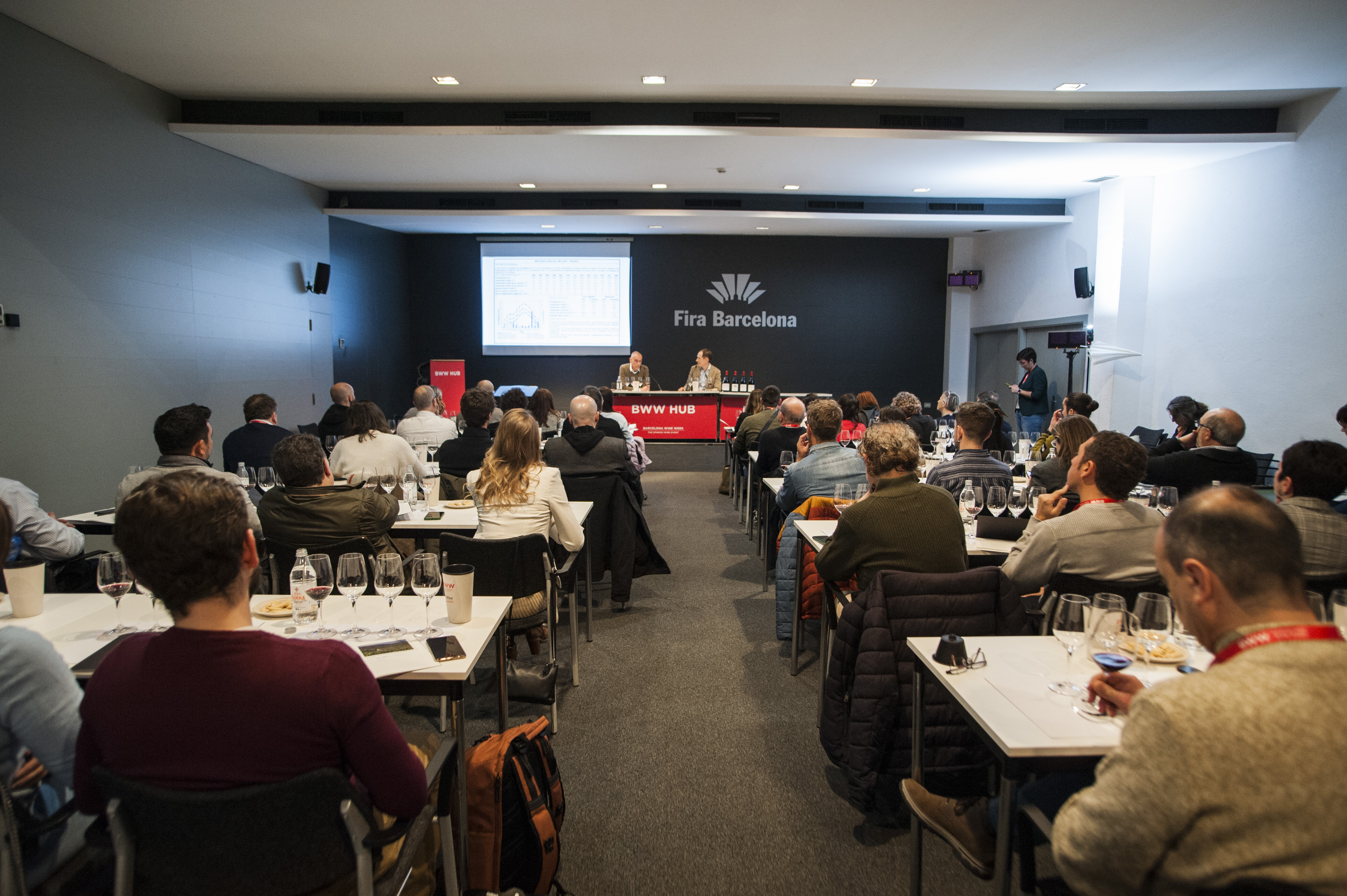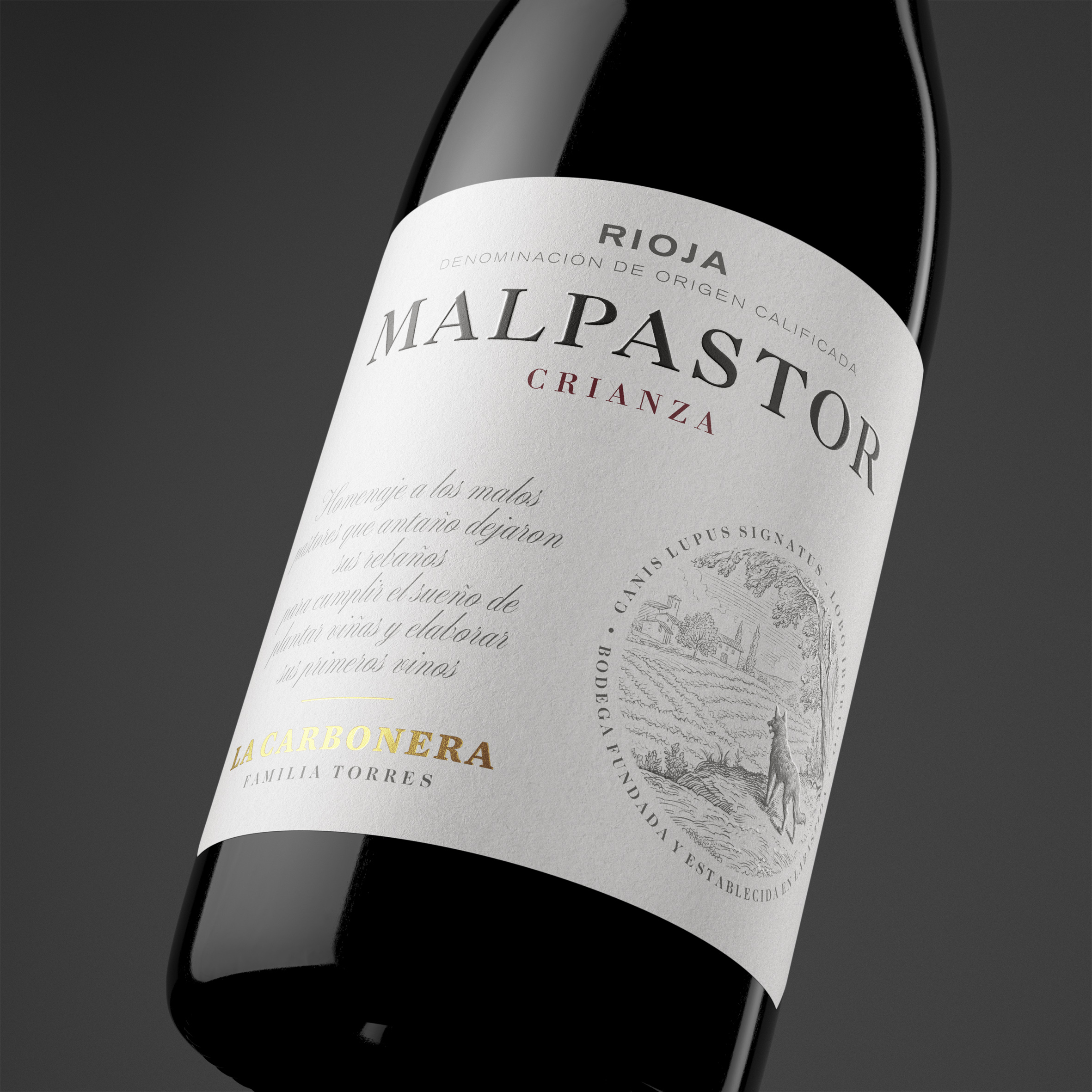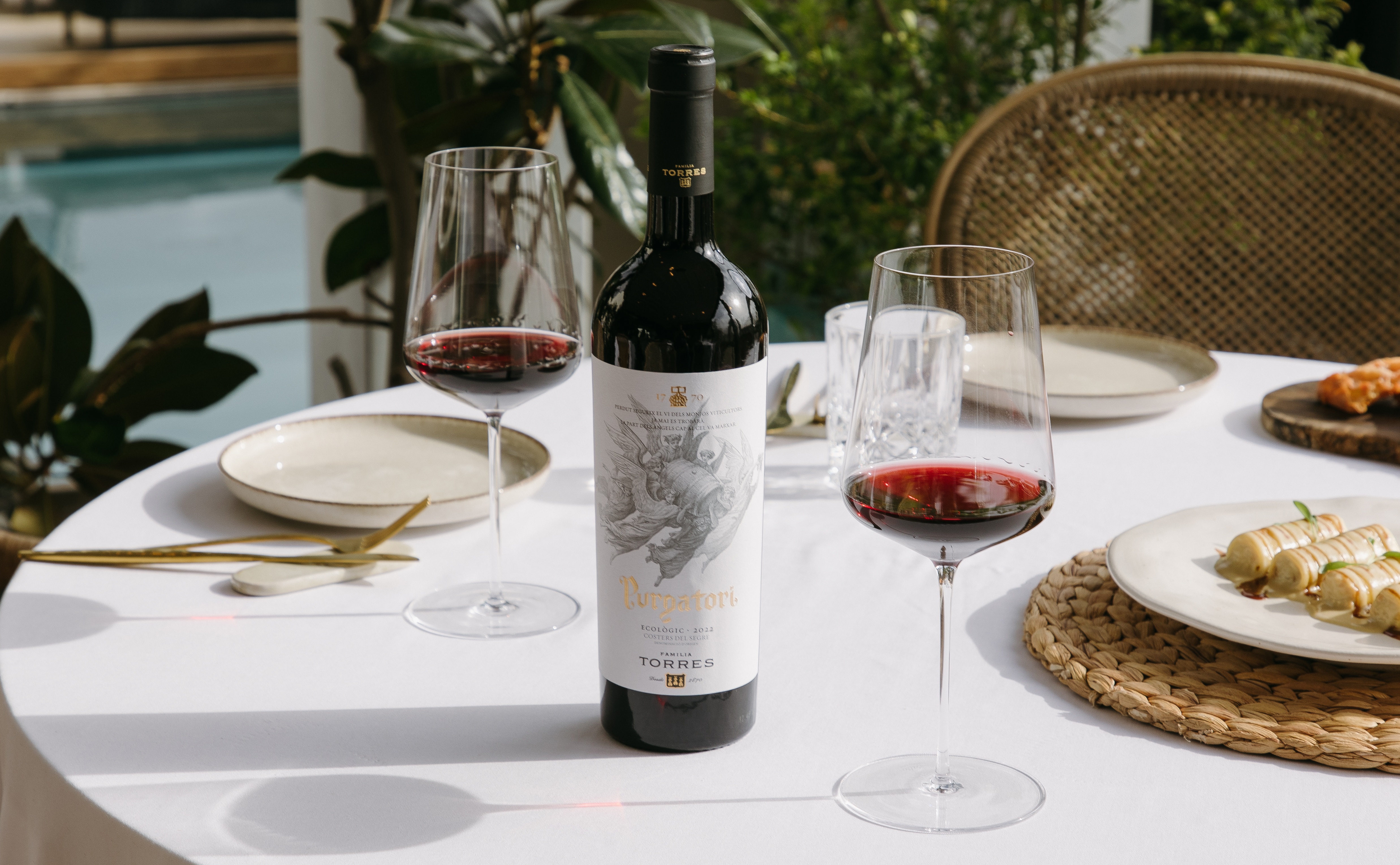Familia Torres has firmly established its winemaking project in the historic Priorat region with four wines that reflect four approaches to this land of llicorella slate soils and steep slopes in the province of Tarragona. The range goes from a wine that embodies the region as a whole to an exceptionally unique single vineyard wine. Visitors to Barcelona Wine Week, held from 6 to 8 February, were able to experience this first hand in a tasting led by Miguel Torres Maczassek, from the fifth generation of Familia Torres, and Jordi Foraster, the winemaker and manager at Familia Torres’ winery in Priorat.
Both agreed that Priorat’s distinctive slate soils known as llicorella are what give its wines their character. These acidic soils, formed 300 million years ago during the Carboniferous Period, are extremely poor in organic matter and serve as the backbone of Priorat wines, although there are slight differences depending on the vineyard. In fact, it is the vineyards – thanks to their age and location – that distinguish the four wines Familia Torres produces in Priorat: Secret del Priorat, Salmos Vi de Vila, Perpetual Vinyes Velles, and Mas de la Rosa.
To better appreciate the profile of each wine, the tasting was a horizontal of the 2019 vintage, a year that ‘was good, albeit with difficult moments that forced us to adapt’, according to the winemaker. ‘Despite yields that were even lower than usual, the results were excellent, with a good concentration of aromas and freshness,’ he added.
The tasting began with Secret del Priorat, a wine that aims to show Priorat as it is today: a varied region with different grape varieties and scattered vineyards located at various altitudes. This is the Familia Torres Priorat wine that takes a more general approach, reflecting the region as a whole since the blend is made up of five varieties (40% each of Cariñena and Garnacha and the remaining 20% a combination of Syrah, Cabernet, and Merlot), originating in six municipalities: El Molar, El Llaor, and Bellmunt, on the one hand, in the low, warm areas of Priorat, and Porrera, Torroja, and Poboleda, on the other, in the higher and cooler areas, which give the wine more acidity.
Salmos Vi de Vila, meanwhile, expresses the typicity of just one municipality: Porrera. The grapes are mostly sourced from winery-owned vineyards in the higher part of Porrera. Known as La Giberga, La Solana, and La Coma, they were planted on terraces in the 1990s at an altitude reaching 550 metres. ‘It’s a stunning vineyard, with undulations and sunny and shady areas, that seems like a work of art,’ observed Torres. Salmos is a blend of Garnacha, which gives the wine a lusciousness, and Cariñena, which gives it body and structure. To Foraster, ‘it’s a wine that emulates the history of Priorat thanks to the varieties that make it up, and tradition thanks to the style of the wine, with a more mature substance that maintains the floral part’.
The main distinctive characteristic of Perpetual Vinyes Velles, the third wine in the tasting, is the fact that its grapes come from old vines grown in century-old vineyards in five municipalities, where the yields are very low and there is little water retention capacity. Torres pointed out that of the 2200 hectares currently under vine in Priorat, there are now just 150 hectares of vineyards over 75 years old, and that the DOQ Priorat appellation was the first in Spain to protect old vines.
Perpetual was created in 2005 to contribute to preserving this heritage and show what these Cariñena and Garnacha vineyards were capable of. The wine has included the mention ‘Vinyes velles’ (‘old vines’) since the 2019 vintage, as per the new DOQ Priorat classification. ‘Perpetual is an example of heroic viticulture and talks about respect for culture and the families of vine growers in the 20th century who kept these vineyards alive and remained in Priorat’, explained Torres.
‘We want to take a stand for Cariñena, especially from old vines. It’s a diamond in the rough, a virtually unique variety that can show great elegance’, noted Miguel Torres. Cariñena is also the main variety in Mas de la Rosa, which will soon go for Gran Vinya Classificada status, the appellation’s highest wine classification. Mas de la Rosa is Familia Torres’ most exclusive Priorat wine, as it comes from a single 1.9-hectare vineyard planted before 1939. This bush-trained vineyard stands on steep slopes known locally as costers.
‘Mas de la Rosa is a small valley in the form of an amphitheatre where the undisputed stars are the old vines and where every inch exudes history’, said Miguel Torres, mentioning that regenerative viticulture has been practised for years in this vineyard. ‘The richness of the terroir goes beyond the soils; here, we find great diversity and aquifers that favour grape ripening’, he added. Foraster also remarked that ‘with this wine, we’ve aimed to capture the essence of the vineyard, with total candour, minimizing our intervention both in the vineyard as well as in the winery, to show the vineyard as it is’.
To conclude the tasting, Miguel Torres talked about the Tossals de Porrera project, the highest llicorella slate vineyard in Priorat at nearly 750 metres in altitude, which was harvested for the first time this year. ‘We want to revive heroic viticulture at high altitudes in the light of climate change and thinking about future generations. Today we’re enjoying the wines thanks to the vineyards our ancestors planted, and that’s why we’d like to plant our seeds for future generations’.





